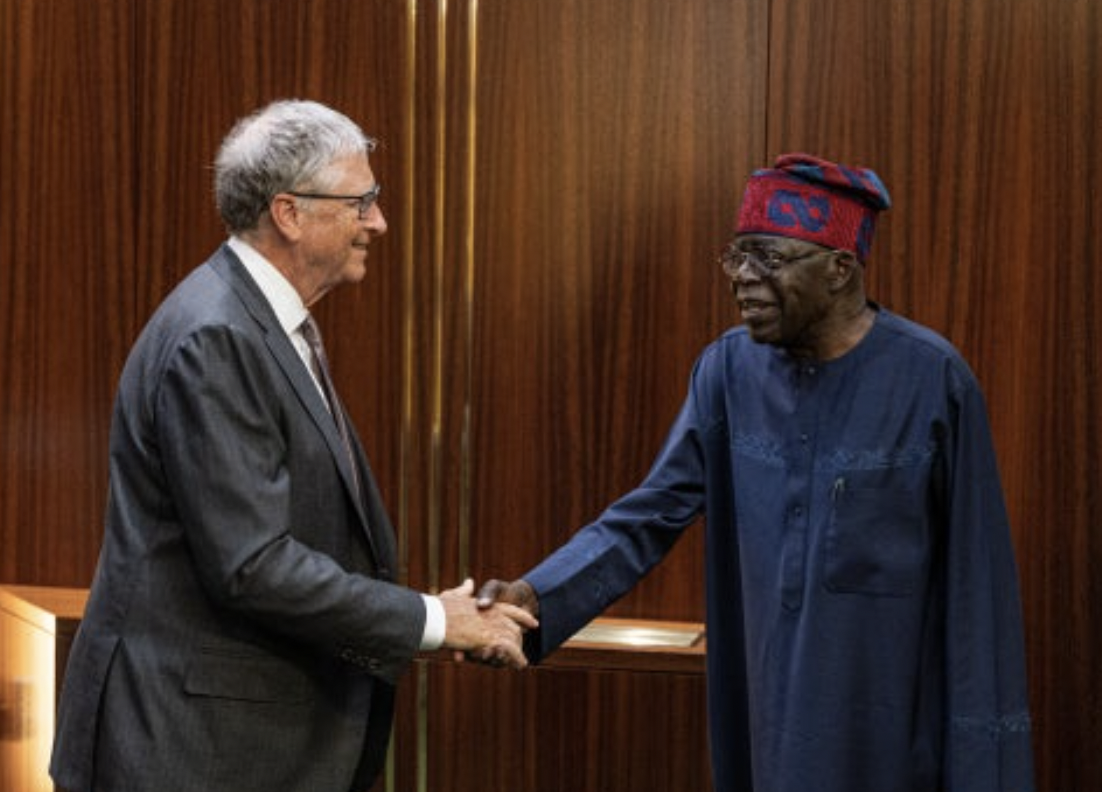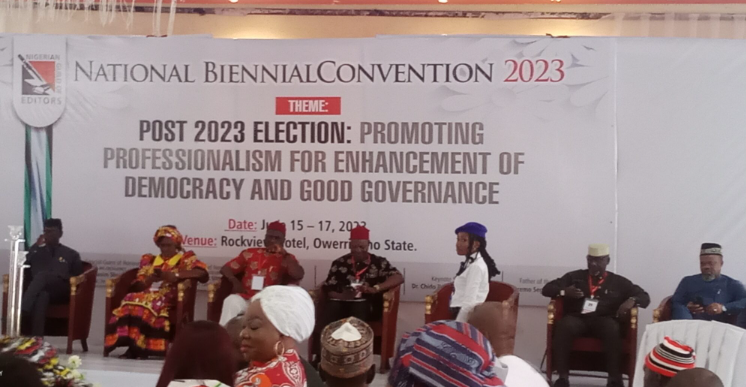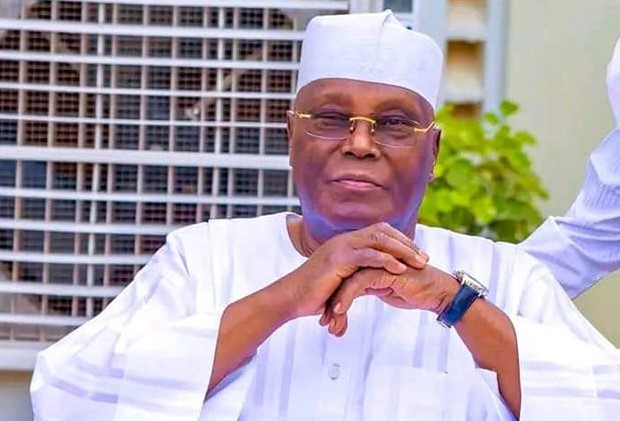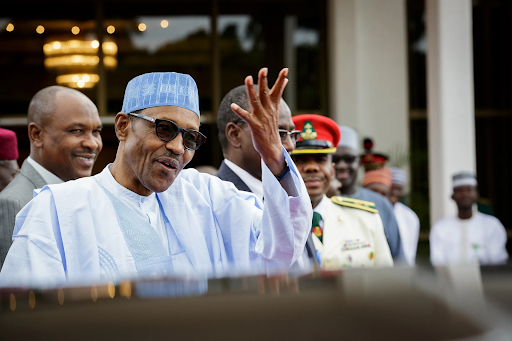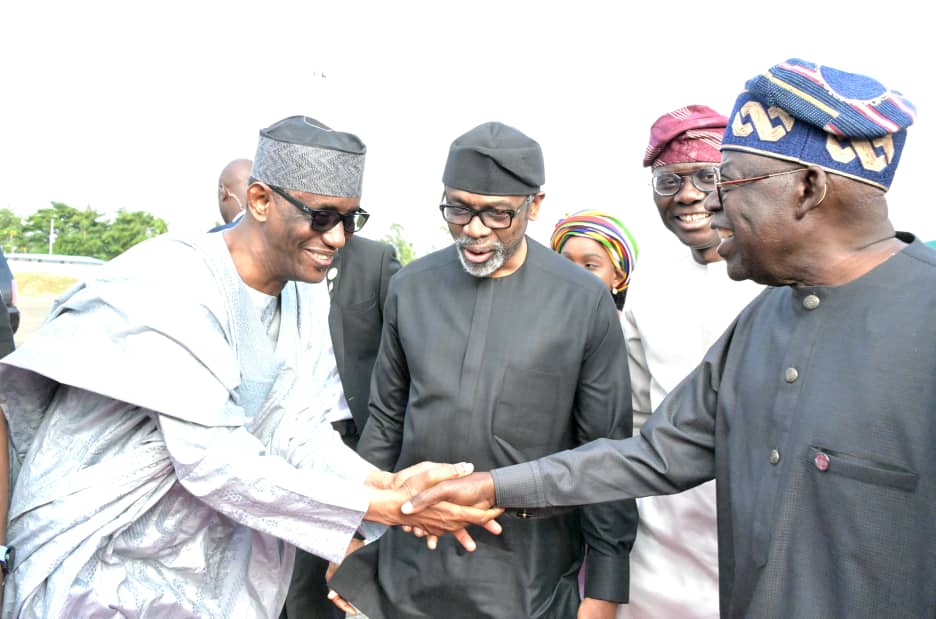Bill Gates, the co-chair of the Bill and Melinda Gates Foundation (BMGF), was in Nigeria for a few days last week. He started his trip in Abuja, where he met President Bola Tinubu. He crossed into Niger Republic before returning to Lagos to meet young Nigerians and some partners before returning home.
A lot about the Gates trip has been reported, but a lot more has been hidden in the fine print. Today, I share seven things I hope we learnt from Gates’ trip to Nigeria.
Some of them are already known, but many of them remain unknown. So, here we go:
GOVT SHOULD ENCOURAGE JAPA
Gates said at the Youth Innovation Forum in Lagos last Wednesday that the exodus of young talented people out of Nigeria is a healthy thing, which should be encouraged by the government.
Advertisement
Answering questions about software engineers and medical doctors leaving the country, Gates said: “In a sense, people leaving is a good thing if you up the amount of training you’re doing, so you say, ‘okay, some of our doctors can go get a very high salary in the UK, or the US’, some of them will pay to their family broadly and some of them will return.”
“Many of these doctors working on innovative work, spent some time off in the UK, or the US and that’s just part of their training. So having a big diaspora that includes people coming back into business, into government, that’s a very healthy thing,” he added.
Gates suggested that if there was a Japa scale, India will be first, followed by China, and then Nigeria. This is both impressive and troubling at the same time, considering both countries have more than five times our population.
Advertisement
As I have always said, Nigeria can make good of this Japa situation. Ibukun Awosika, former chair of First Bank, shares the same opinion. Lemonades.
GATES FOUNDATION COMMITS $7BN TO AFRICA
Meeting with governors and the vice president during his visit, Gates said Gates Foundation is committing $7 billion to various issues, including immunisation in Nigeria. While reporting this, some media claimed Gates was committing $7 billion to Nigeria. Not exactly, let’s go to the origin.
When visiting Nairobi in Kenya in November 2022, Gates announced the foundation would “spend more than $7 billion over the next four years to support African countries and institutions” working to develop and implement innovative approaches to confront hunger, disease, gender inequality, and poverty.
The funds are not for Nigeria only and are not for a single issue (polio) — as largely reported. The funds are for the majority of issues the foundation is focusing on in the region.
Advertisement
NIGERIA SPENDS $10 ON HEALTHCARE, US SPENDS $8,000
Nigerian numbers are almost always jarring to me when compared to other nations, but Nigeria’s health numbers are the most jarring of all jarring I have seen recently.
During his visit, Gates revealed, citing local data, that Nigeria spends $10 per person annually. He asked that government raise that number to the sub-Saharan African average of $30 per year. Which basically means tripling our health spend.
Gates went on to say the average spend in the US is $8,000 per person per annum. While I understand our economies are not equal, it’s just unthinkable that we spend less than 0.001 percent of what the US spends on our healthcare.
The BMGF co-chair definitely made us feel better when he said it’s really not about how much we spend, but much more about how well the money spent is used.
Advertisement
AI TO BECOME LIKE PHONES IN 5 YEARS
“AI is rapidly becoming accessible to everyone, just like cell phones. In the next five years, even farmers will have access to AI assistants to address their questions about diseases or optimal planting strategies. This widespread availability of AI presents an opportunity to combat inequity by providing access to valuable data.”
The quoted statement above was written by AI with a single prompt. AI has gotten so good in the last 12 months, and Gates believes in the next five years, it will be like mobile phones, available and useful to almost everyone.
Advertisement
IN SOME STATES 90% OF WOMEN STILL DELIVER AT HOME
Like the data keeps telling us, there are equity gaps in financial systems, health, education, across the length and breadth of Nigeria.
Gates gave some voice to this when he said “a mother’s chance of surviving childbirth, and her baby’s chance of thriving in childhood, has a lot to do with the luck of where they’re born.
Advertisement
“In some Nigerian states, most women give birth in a place where they have the help of skilled birth assistants. But in other states, 90 percent of women deliver at home, where they may not get life-saving care.”
The inequality in the last eight years also became more stark in our education, where “in some states, nearly 9 in 10 women have no education at all”.
Advertisement
IRON PROFESSOR AND LITHIUM HEROES
Not all the stories will be told, but some stories should not be missed. Some of those are the story of Bosede Afolabi, a professor at the University of Lagos, and Femi Adeyemo, the CEO of Arnergy.
Gates’ Breakthrough Energy Ventures is backing a company called Arnergy, which is hoping to change the state of electricity in Nigeria. Gates visited Arnergy last week and said “it was super cool to see their hybrid solar power generator and lithium storage unit in person”.
In a very unlikely Japa-da, Adeyemo returned to Nigeria over 10 years ago to build Arnergy, and for the last decade has been solving part of Nigeria’s humongous electricity crisis — one solar panel at a time.
As someone who has previously suffered from anaemia, it was heart-warming to see the work of Prof. Afolabi gain the applause and support of the Gates last week. She is pioneering some medical work on intravenous iron fusions, which can save the lives of hundreds of thousands of people like me across the world.
WHAT GATES TOLD TINUBU
Gates’ message to Nigerian leaders has really not changed, and not likely to anytime soon. In 2018, Gates faced a lot of backlash from government boys for saying the country’s economic plan does not reflect the needs of the people.
This time around, with a new government, Gate told President Tinubu and the governors to invest in health and education, which he considers to be the building blocks of life.
“I had a chance to meet with the newly elected President [Tinubu] and to encourage him that as resources are being allocated, he needs to keep the challenges of equity in mind. We really do need to drive access to the key building blocks,” he said
The message is clear: more investments in equitable solutions and the people who are working on them.
“Nigeria is full of talented people with a lot of potential. But it can be very hard to fulfil that potential if you don’t have access to the most basic building blocks of life,” Gates said.
Add a comment

